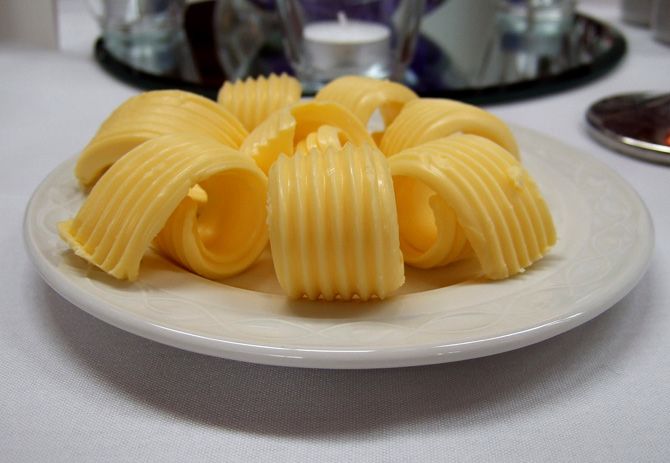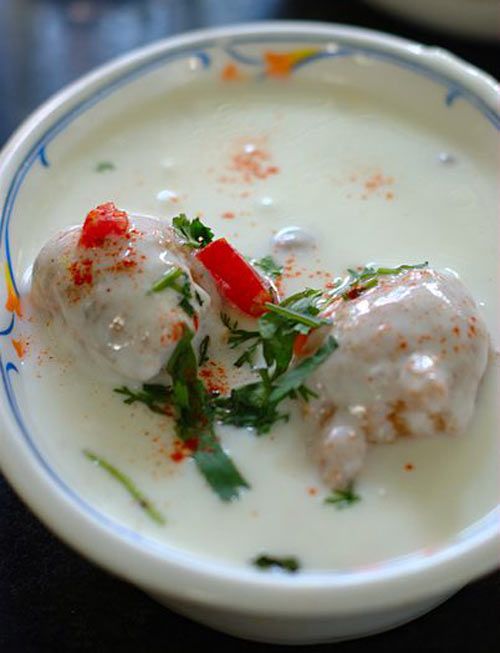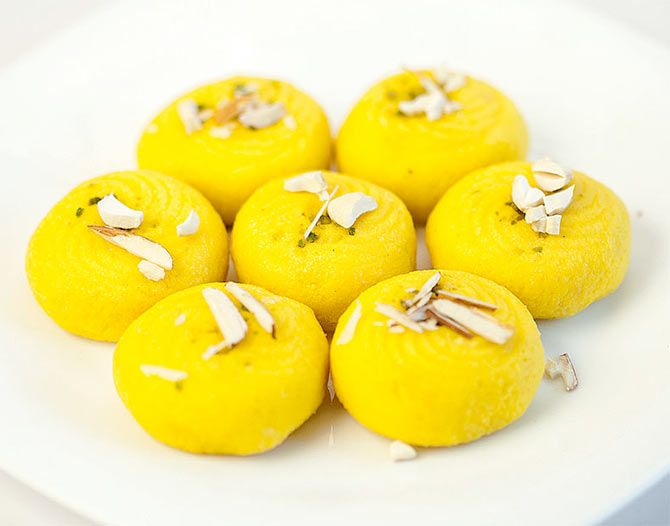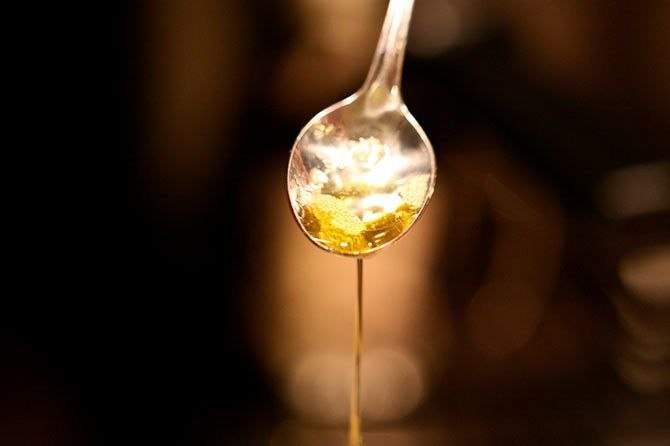 | « Back to article | Print this article |
'People should not be frying in this sunflower oil, corn oil or eating any foods fried in this stuff.'
'They should cook in butter or ghee or olive oil. That is much healthier.'
'You have the home-cooked food. But on top of that you are having the sugary drinks, the junk food, the mithais...'

"Chronic disease, cardiovascular, high blood pressure are being driven by the same thing -- diet," Dr Aseem Malhotra tells Vaihayasi Pande Daniel/Rediff.com
"It is an excess of refined carbohydrate. Too much rice, too much chapattis and not enough fat," Dr Malhotra says in the concluding part of a fascinating interview.
I read you were influenced by the anti-sugar doctor Dr Robert Lustig, who I have interviewed. How has your journey to where you are, where you feel about fat and anti sugar, how did that happen?
You have to wait for my book to come out! This involves investigative stuff, discovering topics of interest, scientific fraud, my journey has been very coloured.
Dr Lustig is certainly one of my influences. No doubt. He is a good friend.
I have done a lot of stuff on my own and put together stuff.
For me, the journey started with the fact that as a medical profession, and as a society, we have neglected the importance of good nutrition on health.
The name of your book and when will it come out or is it a secret?
It's a secret.
Next spring, but with a very reputed publisher.
It is about transparency of information for medical professionals and how we translate that to our patients and how there has been an epidemic of misinformation on diet, health and even drugs. That's a massive topic.
Prescription medications are the third most common cause of death now globally after heart disease and cancer -- prescribed medication...
For me, my biggest inspiration is the patient in front of me. The root of all of this comes from my patients, the consultations I have, the chronic suffering I see...
People are suffering unnecessarily. They are suffering because of this epidemic of misinformation. My campaign, my journey, my mission is to wind back from those harms.
There's a film which is coming out, which will be called -- you will love the title actually -- The Big Fat Fix (independently funded through social media and the premiere will take place in the British parliament in July; a screening is planned in India also).
The aim of this is to try and show people that basically, lifestyle and nutrition, which involves the right kind of exercise, is the most important thing you can do for your health.
The benefits of this are very rapid and within weeks, they start to have effect.
It is not something that is going to take decades, and even people who have already established heart disease can reduce their risk dramatically just by doing some very simple things.
It is not hard. It is not complicated. It is much simpler than people think.
You said fat is not bad. But I am trying to understand this from the Indian perspective.
In India, we seem to go overboard with fried snacks. If you tell us fat is good, we will be eating fried pakoras for breakfast, lunch and dinner.
How do you draw the line on how much fat? When it comes to saturated fats are there restrictions on how much meat your body should include?
You don't have to draw the line. It is just misinformation.
We have to define what kind of fat are we talking about. We are not talking about vegetable oils.
As soon as you say pakoras, you are talking about (processed) vegetable oils (going) into the body, toxic to the body, leading to cancer and heart disease. Forget about it....

When I am talking about fat, I am talking about unprocessed fat. I am talking about butter, I am talking about olive oil, I am talking about ghee. Full-fat dahi.
The old wives' tale, I remember when I was a kid, and my grandmother: Anything wrong with your health... dahi kha lo.
That's the cure for everything. (Laughs) Anything at all, that's the cure: Just have yogurt. Cheese. These are the good foods.
The problem with meat isn't the saturated fat. It's eating too much protein is not good so the recommendation is eat moderately!
Coconut oil?
Absolutely. Coconut oil, fantastic. Coconut oil has a good effect on your cholesterol profile -- it increases your HDL cholesterol.
So coconut oil is very good. So I have a good tablespoon. I follow my own advice.
I am obsessed with looking after my patients, but I am also conscious of my own health.
I have always been health conscious. I have a good tablespoon of extra virgin coconut oil in my coffee.
I have butter every day. It keeps me full. Gives me good energy.
I have done all this for the purpose of good health. Not for weight. But unintentionally I have lost in the last two years six kilos in weight, around my belly. I just eat till I am full.
When you cut out the crap, all the junk food, all the processed, sugary foods in your diet, you can eat (just) three meals a day.
I grew up thinking it was normal for me to be hungry.
I would have my cereal in the morning. By 10,30, 11 I would be starving. And I would have a chocolate bar. And this was a constant thing for me. Snacking. Eating meals. And then snacking in between.
But when you follow this (healthier) lifestyle the body automatically responds to nutritious food, what we traditionally used to eat, our grandparents said don't snack.
So when you do these simple things your body then regulates, knows that you are getting stuff that is nutritious and you feel full.
The processed food (works differently) on our brain.... You keep on eating more. You feel hungry.
So basically when you cut out the fat you get ravenous and satisfy it with processed carbohydrates?
Absolutely.
I have been diagnosed with higher cholesterol of the wrong kind. So what should someone like me do?
Congratulations, first of all.
A patient came into me last week, a lady in her 60s. 'I have been told by my general practitioner that I have high cholesterol.' She was worried. I said: 'Congratulations!'
I explained everything to her and she walked out of the consultation room with a big smile on her face.
So you are saying that if you age, it is bound to happen?
If you are female, the link between cholesterol and heart disease is weaker than men.
We haven't specifically looked at data for 50 year olds, but basically if you are over 60, the higher your cholesterol, the lower your risk of death (for all).
I wouldn't obsess about cholesterol. What I would do is I would look at the profile. This high cholesterol thing is complete nonsense. We need to stop talking about that. What is your cholesterol, what is your triglycerides, what is your HDL. I wouldn't worry.
I would worry more about metabolic health. The sugar you are consuming. Your risk of type 2 diabetes, insulin resistance. A lot more important.
Your cholesterol profile will sort itself out. It has been grossly exaggerated as a risk factor. We need to stop obsessing about total cholesterol and think about doing things conducive to health.
When you look at the dietary trials, the randomised controlled trials, the best trials we have, dietary patterns or changes have actually produced benefits you can prove: Less heart attacks, less strokes, less death. Those trials show no differences in cholesterol between the two groups.
What that means is the benefits of dietary changes are independent of your cholesterol markers. It's the anti-inflammatory properties of these foods.
Are these foods conducive to health or are they going to be harmful?
Are they anti-inflammatory foods or pro-inflammatory foods that reduce or increase your risk of heart disease, dementia, cancer?
This is the mindset that needs to change to tackle diet-related disease that we're all vulnerable too. There is actually no such thing as 'a healthy weight', only a 'healthy person'
What is your view on statins (anti-cholesterol drugs)?
I have heard a lot of talk and social conversations these days in India about how statins can kill you and information passed on casually about how statins are so toxic etc.
(Laughs). I am extremely disturbed by the amount of people taking statins. An overwhelmingly majority -- millions of people around the world -- taking statins, are not going to derive any benefit whatsoever and they don't even know it.
The basic reason is that the prescription pattern is based on misinformation... I am not even going to get into fraudulent data or anything. We are not using the data we have, in a transparent manner, when we prescribe these drugs.
If you have had a heart attack, published data tells us that taking statins every day for five years -- high risk people for whom most people prescribe statins judiciously -- there is a one in 83 chance that taking a statin is going to prevent you from dying or delay death, if you take it for five years.
The usual conversation (in a clinic goes like this): The doctor says take (this pill) and you take it and listen to the doctor. What's missing from this? First the doctor is misinformed.
I have said this in conferences: We have an epidemic of misinformed doctors and misinformed patients... When it comes to statins the doctor is not giving information to the patient in a transparent way and his own understanding is not transparent either.
He should be saying to the patient: Listen, take this every day for the rest of your life. I am prescribing it to you.
I want you to know there is a one in 83 chance that it will delay your death, but there is an equal chance, or almost equal chance, that this drug is going to give you type 2 diabetes.
There is probably around at least a ten to 20 percent chance that you are going to suffer a side effect, that is going to interfere with your life, and up to 1 in 5 chances it will be muscle aches, stomach aches, fogginess.
That's the information we have. That's quite clear. That's what the evidence tells us and how we should be giving this evidence to the patients. Then the patient can decide if he wants to take a statin.
Anything said less than that, in my view, while giving information in a transparent way to patients is unethical. I have said this publicly. I have said this at conferences, I have said it at doctor conferences.
By unwittingly not giving information to a patient in a transparent way and understanding it ourselves we are in effect practicing unethical medicine, in my view.
So in which cases are statins helpful?
I just gave you the answer. It is not a yes and no answer.
If you are low risk, you haven't had heart disease, or a vascular disease diagnosis -- people should know this, it is irrefutable -- taking a statin -- will not prolong your life by one day .
There was a research paper recently that actually looked at this data in a different way.
It calculated the average increase in life expectancy, using published literature -- I am saying published literature, because that literature is already biased anyway -- so even with the biased literature that we have, when you looked at the data on statins: Do you know what the average increase in life expectancy for someone taking statin who has got established heart disease or high risk every day for five years? Four days.
If you are going to take that pill would you not want to know that information before the doctor scaremongers you -- take this pill or you will die. "Oh, okay doctor, I will live 4 days longer, oh very good."
Everything I am saying is factually correct. You can recheck it. You will be shocked.
Such misinformation is the product of a broken system of health care in England, US and India, because of misinformation amongst doctors and misled patients.
This is harming our population health especially when people aren't even following the right kind of lifestyle or being diet (conscious) as well. This is my mission really, to combat all of these harms.
Ultimately this is all about transparent information, so doctors can make clinical decisions beneficial to patients. And patients can make decisions about what kind of treatment they want and whether they can institute changes for the quality of their life and their longevity.
In his interview to me, last year, Dr Lustig advised that people need to get back to the food their ancestors ate and back to home-cooked food. You said you agreed with that.
In India, we are definitely eating home-cooked food daily and less-processed food. But still diabetes is very high in the subcontinent. That's contradictory to both of your advice.
Home cooked food (there is) yes.
The problem is that you are adding all the mithais and that other kind of stuff. You know how the Indian diet is.
You have got the juice and the mithai. I would call it a metabolic disaster for Indians.
Premature death because of vascular-cardio disease is going to cost the Indian economy, by 2030, three trillion dollars.

So you are saying the new version of the Indian diet today, which is quite different from what our grandparents ate, is causing it?
You have the home-cooked food. But on top of that you are having the sugary drinks, the junk food, the mithais and whatever else....
Listen, my parents cook all the time. I have tried to change their diet.
They are eating too much starch, too much refined carbs, even though it is home-cooked.
That's what's driving the insulin resistance and the risk factor for high blood pressure. Chronic disease, cardiovascular, high blood pressure are being driven by the same thing -- diet.
It is an excess of refined carbohydrate. Too much rice, too much chapattis and not enough fat.
So are you saying that genetic factors play a role in the fact that a Norwegian, for instance, can eat two slices of toast daily, but an Indian cannot?
Yes that's a good point. We are more prone. Indians are more carbohydrate intolerant.
Their sensitivity, the amount of toast, for instance, they can take, and tolerate, is less. Or for all these starchy carbohydrates, foods that are rapidly converted to glucose in the body.
If Indians reduced their sugar significantly, including juice, that itself would have an impact very quickly.
The other thing which is very important: Frying in vegetable oil. That is also very strongly linked to metabolic syndromes and insulin resistance.
People should not be frying in this sunflower oil, corn oil or eating any foods fried in this stuff. They should cook in butter or ghee or olive oil. That is much healthier.

I also tell my patients that anything marketed as heart healthy is likely to be the opposite of heart healthy...
When you say this all to your patients -- you are giving advice quite contrary to the present standards and busting myths -- how do they react. How do you convince them?
I explain it to them. I say this is a product of misinformation. It is a lot commercial influences.
It is interesting, patients get it, when you point it out to them. They know it is a lot of vested interest and marketing and that kind of stuff. And I give them alternatives.
I tell the patient: Eat butter. Don't have anything with vegetable oil and 'proven to lower cholesterol' food.
Even people suffering from heart disease, I tell them eat butter, don't eat margarine or proven to lower cholesterol food.
These are people who have come to my consultation room with the impression that cholesterol is this big fear -- that we should fear cholesterol.
By the way Indians should start eating anda (eggs) again. Eggs are great — especially the yolks as well. Cholesterol in food does not influence blood cholesterol.
Cholesterol in food does not influence blood cholesterol.
The yolk is extremely nutritious. It has B vitamins and other positive nutrients. I probably eat about 15 eggs a week.
That's the kind of thing: Our grandmothers grew up on eggs. Cereal should be avoided. No one should be eating cereal.
Another message: Plain porridge oats, with no added sugar is okay.